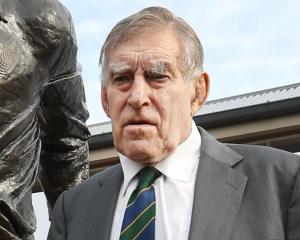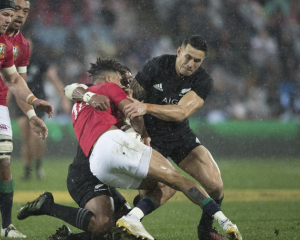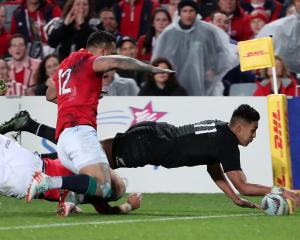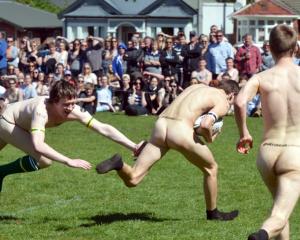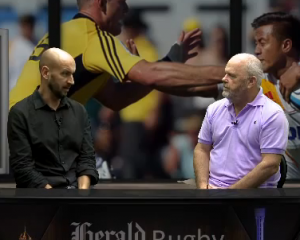Bachop (45) did not appear in the Wellington District Court yesterday but, through his lawyer, said he no longer wished to pursue further name suppression.
He allegedly assaulted his partner after New Zealand's Rugby World Cup win and has pleaded not guilty to assaulting a female, common assault, resisting police, possession of cannabis and possession of drug utensils.
Defence lawyer Val Nisbet said his client was not seeking continued name suppression because he wanted to prevent "the potential of any negative impact on other former All Blacks".
"Mr Bachop originally sought name suppression to give him and his partner time to speak with their children, their immediate family and employers.
"As all are now aware of the circumstance, Mr Bachop does not believe continued name suppression is necessary."
Wellington barrister Steven Price, who specialises in media law, said the decision was a smart move.
"It's pretty much practically the only smart, strategic thing to do whatever your legal rights are.
Whether they got name suppression or not, there would have been a guessing game, and that was likely to have some people guessing correctly.
"In this case, it probably would have called more attention to it than if they just sort of go, `No, look I'm not going to worry about name suppression.' It would have gone on and on."
Bachop would not answer an APNZ reporter's questions at his one-storey brick home in Whitby, north of Wellington.
Looking tired and dressed in a T-shirt, he held on to the slightly-ajar door as he asked for media inquiries to be directed to his lawyer.
"If you could just refer to the media statement? I'd really appreciate that, OK?"
When asked how he felt about his name being made public, he calmly repeated the same line.
Another former All Black was recently granted interim name suppression after pleading guilty to assaulting a child in September. He is due to be sentenced in the Auckland District Court in February.
Mr Price said it should not be assumed he would keep his name suppression after sentencing.
"The law has always been clear that celebrity status by itself is not enough to get you name suppressions, so it's not at all clear that the other former All Black is going to keep getting name suppression.
"It's fairly common for suppression to be granted early on, for the people to have a chance to tell their family, and then not grant it the second time they ask for it."
Mr Price said it was particularly rare for suppressions to be granted after a conviction.
A law change set to come into effect in March makes it clear that suppressions will not be granted solely on the basis of "wealth, reputation or public awareness".
Mr Price said at the moment, celebrities did not get any extra consideration and the law change simply spelled that out.
The problem under the current law was that judges had to weigh up whether the harm caused by publicity was out of proportion to the seriousness of the offence, and that was more likely to apply to celebrities, he said.


